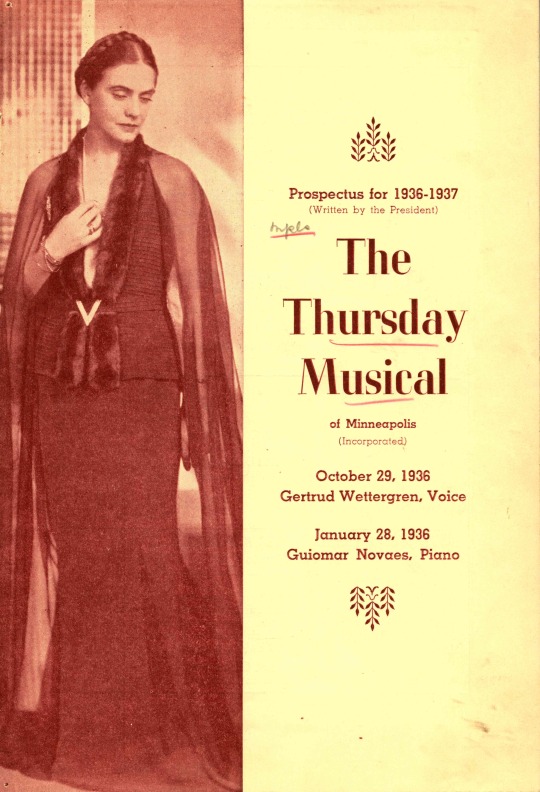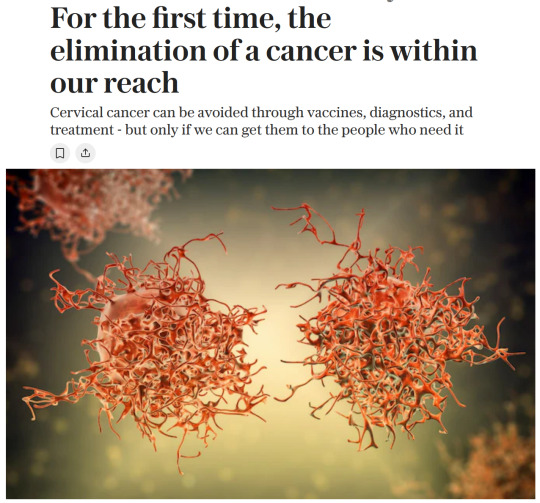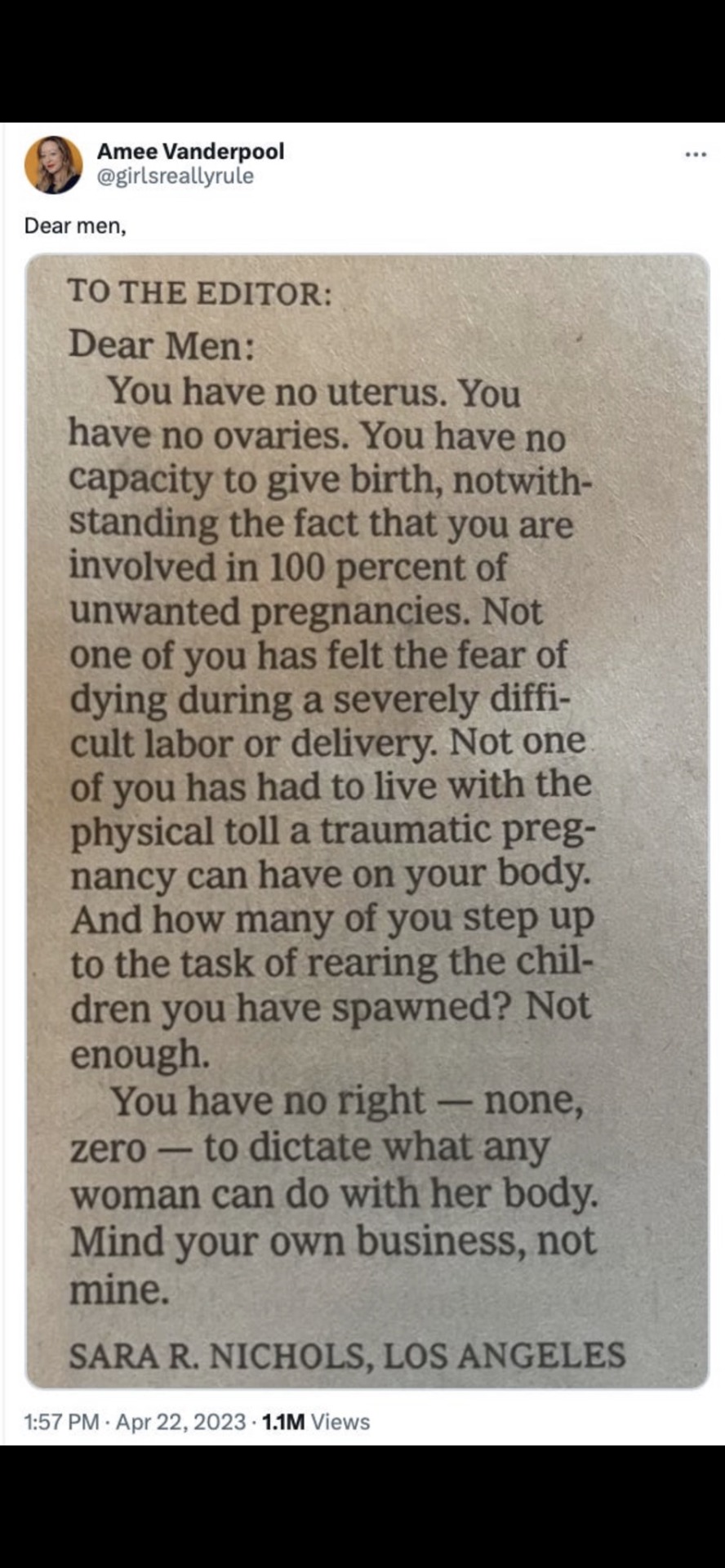#women's organizations
Explore tagged Tumblr posts
Text
by Suzanne Downing
In an era marked by women’s rights militancy, a deafening silence looms over the savage atrocities experienced by Jewish women and girls at the hands of Hamas terrorists.
The United Nations commemorated the International Day for the Elimination of Violence Against Women on Saturday, while a blatant contradiction stared the world right in the face: The systemic rape and murder of Israeli women and children by Hamas terrorists, in what appears to have been a preplanned part of the terror campaign launched by Hamas on Oct. 7.
The systematic dehumanization of Jewish women and children challenges the selective activism that plagues the global women’s rights network. The failure to even acknowledge these war crimes contrasts with the movement’s relentlessly shrill stance on other women’s issues. Whatever happened to “Believe All Women”? (RELATED: BRYAN LEIB: The World Is On Fire And Biden’s Spineless Foreign Policy Isn’t Helping)
Do the women’s organizations not believe the account of a survivor, who hid during the Oct. 7 raid on Israel, but could see from her hiding place a girl who had been captured and was being passed from Palestinian to Palestinian terrorist, who took turns defiling her?
“As I am hiding, I see in the corner of my eye that [a terrorist] is raping her,” the witness recounted to Times of Israel. “They bent her over and I realized they were raping her and simply passing her on to the next [terrorist],” the woman recounted. Her story is not isolated.
Such accounts should catalyze immediate outrage and action, from the White House to the United Nations, yet there remains a baffling silence, a betrayal of the very principles that women’s rights movements say they believe.
On Oct. 13, even though the torture of Jewish women had already been documented, UN Secretary General Antonio Guterres equated Hamas’s brutalities with Israel’s self-defense.
Guterres said of the situation in Gaza that Hamas had killed more than 1,200 people and injured thousands, but, on the other hand, Israel had killed 1,800 people in response and injured thousands. He went on to say that Israel was being unreasonable to call on Palestinians in Gaza City to move to the south of the territory within 24 hours.
23 notes
·
View notes
Text
U.S.-based Resources for Women + Girls + People Facing Unplanned Pregnancies
The post I had originally pinned to the top of my blog had mostly broken links, so I’ve made my own :) Feel free to spread it to those who need help, whether that’s by sharing it on your Tumblr or sharing the links with people in your life who need it. This is mostly U.S.-centric since that’s where I’m from.
It’s a long-ish post, so I’m putting it under a Read More.
Resources for Women Facing Homelessness and/or Joblessness:
Women’s Shelters Search (search by state or city near you - offerings vary by shelter) https://www.womenshelters.org/
Good Counsel (faith-based - teaches life skills to women so they can avoid homelessness; teaches about budgeting and vocational assistance, parenting, nutrition, and spirituality) https://www.goodcounselhomes.org/contact-us
211 (secular hotline that helps you get financial resources if you're struggling; also offers help for mental health concerns) https://www.211.org/about-us
Resources for Women Facing Unplanned Pregnancies:
Real Alternatives https://www.realalternatives.org/
Option Line (helps you locate health centers that offer food, shelter, care for your baby, after-abortion support, etc. - offerings vary based on health center) https://optionline.org/center-locator/
Abide Women’s Health Services (black-owned - secular - based in Texas - offers pregnancy care, ultrasounds, and breastfeeding support) https://www.abidewomen.org/
Human Defense Initiative (secular - has a non-judgmental pregnancy helpline and offers material assistance to expectant mothers) https://humandefense.com/helpline/
Birthright International (secular - offers free and non-judgmental support as well as referrals for medical support, financial resources, housing, legal, social assistance, professional counseling) https://birthright.org/
Standing with You (secular - confidential and non-judgmental - offers STI/STD testing, support for unplanned pregnancies, financial assistance, housing assistance, education financial aid, scholarships, and childcare) https://www.standingwithyou.org/ https://www.standingwithyou.org/local-resources/
Women Deserve Better (secular - offers or directs you toward various resources, including for working mothers, single mothers, and student mothers) https://www.womendeservebetter.com/
Teen Mother Choices International - (faith-based - helps teen mothers get the financial resources and care they need for raising their babies, and also allows the moms to complete their education) https://teenmotherchoices.org/
Legacy of Life Foundation (faith-based - offers safe and non-judgemental support and resources for women in unplanned pregnancies during and after they have given birth) https://www.legacyoflifefoundation.org/
Good Counsel (faith-based - teaches life skills to women so they can avoid homelessness; teaches about budgeting and vocational assistance, parenting, nutrition, and spirituality) https://www.goodcounselhomes.org/contact-us
Adoption Resources:
Gladney Center for Adoption (secular - resources for parents who want to put their children up for adoption or for those seeking adoption) https://gladneyadoption.com/
Post-Abortion Counseling:
Pregnancy Choice (secular) https://pregnancychoice.org/abortion/abortion-recovery/
Human Defense Initiative (secular) https://humandefense.com/helpline/
Project Rachel (faith-based) https://hopeafterabortion.com/
Lumina (faith-based) https://www.goodcounselhomes.org/what-we-do/lumina
Alternatives to Planned Parenthood by state:
Planned Parenthood makes money off abortions, thus incentivizing the killing of preborn babies (including female babies, AKA future women). There also are a disproportionate amount of PP clinics in underprivileged communities and majority people of color communities.
Health Clinics Listed by State (compiled by Consistent Life Network) http://www.grassrootsdefunding.org/matching/
These health centers may be cleaner and safer than Planned Parenthood (see Check My Clinic for health violations at local abortion clinics)
These health centers may offer mammograms, which Planned Parenthood does not
They are not incentivized to perform abortions as PP is
Many offer various services, from STI/STD testing, birth control, pregnancy tests, to pap smears and more
Offerings vary by health center
Midwife and Doula Resources and Info:
Choices in Childbirth (secular) https://everymothercounts.org/choicesinchildbirth/
Black Midwives Alliance (secular) https://blackmidwivesalliance.org/
Their goals, as outlined on their website:
To increase the number of Black midwives and access to Black midwives in order to have more providers who can impact perinatal health disparities.
To raise public awareness that Black midwives exist and provide services in their respective communities.
To support legislative efforts led by Black midwives and supporters in various states.
To advocate for and support the development of educational pathways for Black student midwives.
To establish and raise funds for a scholarship specifically designated for Black student midwives.
To provide member benefits, for example: negotiating group discounts, access to legal advice and representation.
#pro life#crisis pregnancy#women's organizations#pro life organizations#unplanned pregnancy#my posts
3 notes
·
View notes
Text




Thursday Musical
Since today is Thursday, we're highlighting the Thursday Musical -- one of the nation's oldest arts organizations. Founded in 1892 by a group of Minneapolis women, the "Ladies Thursday Musicale" (as it was then known) brought classical music performance to the city. Club members, many of them trained musicians, staged concerts themselves and also hosted guest instrumentalists and vocalists. In addition to organizing performances, the Thursday Musical quickly became a patron of musical education and arts philanthropy. Club members performed in factories, schools, and community centers. They advocated for music education in the public schools and also offered scholarships to student musicians.
Still active today, the Thursday Musical continues to promote and support local musical opportunities and performances, including through its namesake Thursday concert series.
Programs from the Collection on the Thursday Musical (M/A 0136) available in Special Collections.
#minneapolis#minnesota#thursday musical#women's clubs#music performance#thursday#women's organizations
7 notes
·
View notes
Text

Article
"Every year, over 350,000 women die from cervical cancer and another 660,000 are diagnosed. [Note: Plus trans men and other trans people with a cervix.] As a consequence, children are orphaned, families impoverished and communities diminished by the loss of mothers, wives, daughters and sisters.
And yet, unlike most other cancers, almost all these cases and deaths can be averted. We have powerful vaccines that can prevent infection with the human papillomavirus (HPV) that causes cervical cancer; we have diagnostics to detect it early; and we have treatments for those it strikes. With these tools, cervical cancer can not only be stopped; it could become the first cancer to be eliminated. Some high-income countries are already close to elimination, meaning fewer than four cases per 100,000 women.
But in many low- and middle-income countries, these tools are still not available, which is why 94% of cervical cancer deaths occur in those countries.
In 2018, WHO launched a global call to action to eliminate cervical cancer, which was followed in 2020 by the adoption by all 194 WHO Member States of a Global Strategy to Accelerate the Elimination of Cervical Cancer as a Public Health Problem. The strategy calls for countries to achieve three targets by 2030: 90% of girls fully immunised against HPV; 70% of women receiving timely screening; and 90% of those found with precancer or cancer accessing treatment.
These targets are not just aspirational, they are achievable, even in low- and middle-income countries. Bhutan has already reached the targets, the first to do so in the South-East Asia region.
Since introducing the HPV vaccine in 2011, Rwanda has reached vaccine coverage of 90%, and today announced its national goal to reach the 90-70-90 targets three years ahead of schedule, by 2027. Already, in two districts – Gicumbi and Karongi – Rwanda is meeting those goals. Nigeria, which introduced the HPV vaccine in October last year [2023], has already vaccinated 12.3 million girls.
We have the tools and the opportunity to eliminate cervical cancer.
Since WHO issued the global call to action in 2018, more than 60 countries have introduced the HPV vaccine into their immunisation programmes, bringing the total to 144 countries that are routinely protecting girls from cervical cancer in later life. With scientific advances, we can now prevent cervical cancer with just a single dose, which 60 countries are now doing.
The largest provider of HPV vaccines to low- and middle-income countries is Gavi, the Vaccine Alliance, which plans to vaccinate 120 million children between now and 2030. But this plan requires that investments in health are sustained. We are also counting on manufacturers to confirm and honour their commitments to provide HPV vaccines to low- and middle-income countries in the coming years, to avoid the supply constraints that held back progress in the past.
But we cannot rely on vaccines alone. The impact of the rapid scale-up in vaccinating girls now will not be seen for decades, when they reach the adult years when cervical cancer typically appears. To save lives now, we must match the increase in vaccination with increases in screening and treatment.
Decades ago, as more women gained access to pap smears in developed countries, the mortality associated with cervical cancer dropped rapidly. Today, even better tests are available. Over 60 countries now include high-performance HPV tests as part of their screening programs. Women can even collect their own samples for HPV testing, removing more barriers to life-saving services. In Australia – which is on track to become one of the first countries in the world to achieve elimination – more than a quarter of all screening tests are now done this way...
Several countries are also investigating the use of artificial intelligence to enhance the accuracy of screening in resource-limited settings. When women are found with precancerous lesions, many are now treated with portable battery-powered devices, which can be operated in remote locations."
-via The Telegraph, November 18, 2024. Article written by Dr Tedros Adhanom Ghebreyesus, Director-General of the World Health Organization (WHO).
#cancer#cw cancer#fuck cancer#vaccines#hpv#cervical cancer#women and girls#vaccines work#public health#world health organization#womens health#healthcare#pap smear#obgyn#cancer treatment#cancer awareness#good news#hope
1K notes
·
View notes
Text
btw shallan is bi bc of me. i tweeted smth like "bsand did you know you wrote shallan as super into her beautiful talented mentor? like her whole pov comes off as so attracted to women?" and he replied like "it wasn't on purpose but looking back you are SO right" and then in book 3 or 4 one of shallan's alters (who is less concerned w social propriety than shallan so obviously she's where the attraction to women would go) has a bi moment. BC OF ME!!!!! here's to hoping for multiple shallan bi moments in book 5 🙏🙏🙏🙏
#stormlight archive#sry to ppl who check this tag i want to keep my blog organized :|#it seems unlikely bc she's very engaged#but you never know#bsand DID say she and adolin would be down for a throuple with kaladin so#i think it would be very ic for them to admire beautiful women together#silverstarschat
1K notes
·
View notes
Text



Flower Mandalas by Kathy Klein
via Colossal
#things organized neatly#color#flowers#pattern#mandala#earth#landscape#art#nature#design#female artists#contemporary art#sculpture#circle#arizona#kathy klein#colossal#perfection#yellow#purple#blue#green#teal#womens art#spring#summer#beauty#outdoor
1K notes
·
View notes
Text


now i don’t want to sound crazy ladies but do you think it might have lost steam because it literally no longer has even a vaguely defined purpose. it has no goals or ideals maybe. it feels empty and meaningless because it doesn’t actually stand for anything this time. an incompetent rapist won over an extremely qualified woman with no scandals to her name, and they decided it wasn’t the time to organize against misogyny maybe. do you guys have any demands or
#women organizing to say “we’re not okay with having a president who says to grab women by the pussy” was at least something of a goal#none of the subsequent women’s marches had as much force because after that one it was like#are you protesting for anything in particular? is this a pro choice protest? a ratify the era protest?#a “let’s walk around in circles” protest?#what are you organizing for#but at least it was for women#now it’s just like. take to the streets for ummmm reasons#no we don’t have any demands what are you talking about
489 notes
·
View notes
Text
Leonard Nimoy The Activist

Leonard Nimoy Picketing At The 1981 WGA Strike


Leonard Nimoy At The 1989 National Organization Of Women Rally For Women's Rights For Abortion In Washington
#Photography#Star Trek#Leonard Nimoy#Science Fiction#Film#Television#WGA#Writers Guild Of America#NOW#National Organization Of Women#Vintage#1981#1989#1980s#80s
421 notes
·
View notes
Text
You've heard of gender non-conformity, now get ready for gender malicious compliance.
#genderqueer#gender fuckery#gender presentation#organic home grown content#i don't know what this would be exactly#maybe those women who are so over the top hyper feminine that it loops around to become gender fuckery#100 tier
968 notes
·
View notes
Text









#feminine energy#leveled up mindset#luxury black women#black luxury#black femininity#black girl luxury#soft moodboard#black girl moodboard#moodboard#organization#high maintenance#luxury#rich black girls#soft black women#career development#career journey
736 notes
·
View notes
Text


"What's worth remembering? That you died? That I saw it coming? Our entire coven wiped out by a fever. I saw it. I told you. But it didn't change anything."
AGATHA ALL ALONG (2024)
#agatha all along#lilia calderu#rio vidal#patti lupone#aubrey plaza#marvel#mcu women#my gifs#mcu#notsosecretlyalesbian#this has been on my mind for a hot second#and after rewatching the episode i just couldn't not do it#there's two more gifsets but i'll be organized and leave them on my queue
152 notes
·
View notes
Text
Foods You Can Eat Instead of Taking Vitamins and Supplements 🍎🥥🥦🥑🍌
Vitamin A: Carrots, sweet potatoes, spinach, kale.
B Vitamins: Whole grains, meat, eggs, nuts, legumes.
Vitamin B1 (Thiamine): Whole grains, legumes, nuts, pork, fortified cereals.
Vitamin B2 (Riboflavin): Dairy products, lean meats, almonds, leafy greens. Vitamin B3 (Niacin): Poultry, fish, nuts, legumes, whole grains.
Vitamin B5 (Pantothenic Acid): Meat, poultry, eggs, avocado, whole grains.
B6: Chicken, turkey, fish, bananas, chickpeas.
Folate (Vitamin B9): Leafy greens, legumes, citrus fruits, fortified grains.
Vitamin B12: Animal products (meat, fish, dairy), fortified plant-based foods.
Vitamin C: Citrus fruits, strawberries, bell peppers.
Vitamin D: Fatty fish (salmon, mackerel), fortified dairy products, sunlight.
Vitamin E: Sunflower seeds, almonds, vegetable oils, nuts, spinach, broccoli.
Vitamin F (Essential Fatty Acids): Fatty fish, flaxseeds, chia seeds, walnuts.
Vitamin H (Biotin): Eggs, nuts, sweet potatoes, salmon, avocado.
Vitamin K: Leafy greens (kale, spinach), broccoli, Brussels sprouts.
Vitamin K2: Fermented foods (natto, cheese), animal products, leafy greens.
Vitamin L1 (Anthranilic Acid): Cruciferous vegetables (cabbage, cauliflower), legumes.
Vitamin P (Bioflavonoids): Citrus fruits, berries, onions, green tea.
Vitamin Q (Ubiquinone): Fatty fish, organ meats, spinach, cauliflower.
Vitamin T (L-carnitine): Red meat, poultry, fish, dairy products.
Vitamin U (S-Methylmethionine): Cabbage, broccoli, Brussels sprouts.
Betaine: Beets, spinach, whole grains, seafood.
Boron: Fruits (apples, pears), legumes, nuts, avocado.
Calcium: Dairy products, leafy greens (kale, collard greens), almonds.
Carnosine: Beef, poultry, fish.
Carnitine: Red meat, dairy products, fish.
Catechins: Green tea, black tea, dark chocolate.
Choline: Eggs, liver, beef, broccoli, soybeans.
Creatine: Red meat, fish, poultry.
Chromium: Broccoli, whole grains, nuts, brewer's yeast.
Chondroitin: Cartilage-rich foods (bone broth, connective tissue of meat).
Copper: Shellfish, nuts, seeds, organ meats, lentils.
Coenzyme Q10 (CoQ10): Fatty fish, organ meats, nuts, soybean oil.
Ellagic Acid: Berries (strawberries, raspberries), pomegranates.
Glucosinolates: Cruciferous vegetables (cabbage, broccoli, cauliflower).
Glucosamine: Shellfish (shrimp, crab), bone broth, animal connective tissues.
Glutamine: Dairy products, meat, poultry, cabbage.
Inositol: Citrus fruits, beans, nuts, whole grains.
Iodine: Seafood, iodized salt, dairy products.
Iron: Red meat, poultry, beans, lentils, spinach.
L-Theanine: Mushrooms, black tea, white tea, guayusa.
Lignans: Flaxseeds, whole grains, cruciferous vegetables.
Lutein and Zeaxanthin: Leafy greens (spinach, kale), corn, eggs.
Lycopene: Tomatoes, watermelon, pink grapefruit.
Magnesium: Spinach, nuts, seeds, whole grains, beans.
Manganese: Nuts, seeds, whole grains, leafy greens, tea.
Melatonin: Cherries, grapes, tomatoes.
Omega-3 fatty acids: Flaxseeds, chia seeds, walnuts, fatty fish.
PABA (Para-Aminobenzoic Acid): Whole grains, eggs, organ meats.
Pantothenic Acid (Vitamin B5): Meat, poultry, fish, whole grains, avocado
Pectin: Apples, citrus fruits, berries, pears.
Phosphorus: Dairy products, meat, poultry, fish, nuts.
Prebiotics: Garlic, onions, leeks, asparagus, bananas (unripe), oats, apples, barley, flaxseeds, seaweed.
Probiotics: Yogurt, kefir, fermented foods (sauerkraut, kimchi).
Potassium: Bananas, oranges, potatoes, spinach, yogurt.
Polyphenols: Berries, dark chocolate, red wine, tea.
Quercetin: Apples, onions, berries, citrus fruits.
Resveratrol: Red grapes, red wine, berries, peanuts.
Rutin: Buckwheat, citrus fruits, figs, apples.
Selenium: Brazil nuts, seafood, poultry, eggs.
Silica: Whole grains, oats, brown rice, leafy greens.
Sulforaphane: Cruciferous vegetables (broccoli, Brussels sprouts), cabbage.
Taurine: Meat, seafood, dairy products.
Theanine: Green tea, black tea, certain mushrooms.
Tyrosine: Meat, fish, dairy products, nuts, seeds.
Vanadium: Mushrooms, shellfish, dill, parsley, black pepper.
Zeatin: Whole grains, legumes, nuts, seeds.
Zinc: Oysters, beef, poultry, beans, nuts, whole grains.
#women health#health and wellness#healthy diet#healthy living#healthy lifestyle#womens health#health#health tips#wellness#levelupjourney#dream girl guide#dream girl tips#dream girl journey#health is wealth#clean girl aesthetic#clean girl#it girl#nutrition#supplements#organic#food#nutrients#healthyhabits#healthy life tips#self love journey#self love#dream life#dream girl
2K notes
·
View notes
Text

"Piece of civic artwork in St Mungo Square. It’s called Silent Agitator, created by Glasgow based artist Ruth Ewart and inspired by a 1917 poster for Industrial Workers of the World Union."
Photo source
"Silent Agitator is a large clock based upon a detail of an illustration produced by Ralph Chaplin in 1917 for the Industrial Workers of the World union (the IWW). Chaplin’s illustration, bearing the inscription ‘What time is it? Time to organize!’, was reproduced on millions of gummed stickers, known as ‘silent agitators’, that were distributed by union members in workplaces and public spaces across the US. The clock hands bear workers’ clogs or, in French, sabots from which the word sabotage is derived (sabotage was originally used in English to specifically mean disruption instigated by workers). Clocks are a ubiquitous symbol within industrial disputes as hourly wages and the extent of working hours are often the source of argument. Silent Agitator nods to the IWW’s organising for the rights to a five-day work week and eight-hour work day, and posits a future in which we further reclaim our time."
Ruth Ewan (b. 1980, Aberdeen, Scotland) lives and works in Glasgow, Scotland.
https://www.sculptureinthecity.org.uk/artworks/silent-agitator/
#time to organize#activism#activist#ruth ewan#politics#get active#IWW#silent agitator#women sculptors
153 notes
·
View notes
Text
leaving a three hour lab be like:
what time is it? why is it dark outside? where did the sun go?
I'm starving.
I'm never doing that again (literally has the same lab scheduled the following week).
#women in stem#chemistry#organic chemistry#biology#microbiology#stem#college#premed#physics#prevet#science#lab
1K notes
·
View notes
Text



buncha wanpee busts from may (boa) + 2023 (the sketches) that i never uploaded.. saw da wanpee news on twt today so ive been in the mood
#one piece#boa hancock#nico robin#nami (one piece)#nami#roronoa zoro#vinsmoke sanji#monkey d. luffy#that robin+sanji+nami is genuinely so good like. i could not draw like that again to save my life.#i dare not even try to clean up the sketches...#my art#so envious of people who can sketch well.. ive never been much of a sketcher bc everything always took so longgg even a single doodle used#to take me 1-few days back then#but i want to get back into it/unlearn the perfectionism..#how do you guys find sketching enjoyable and churn out poses? please genuinely do tell ..#real men need to be more like sanji. minus the lovestruck thirst part i mean the gentleman cook part#one piece women are really on another level tho *faints*#im not talking about the thin waist no abdominal organs thing i mean when fanartists draw them. im. weak at the knees
171 notes
·
View notes
Text

853 notes
·
View notes